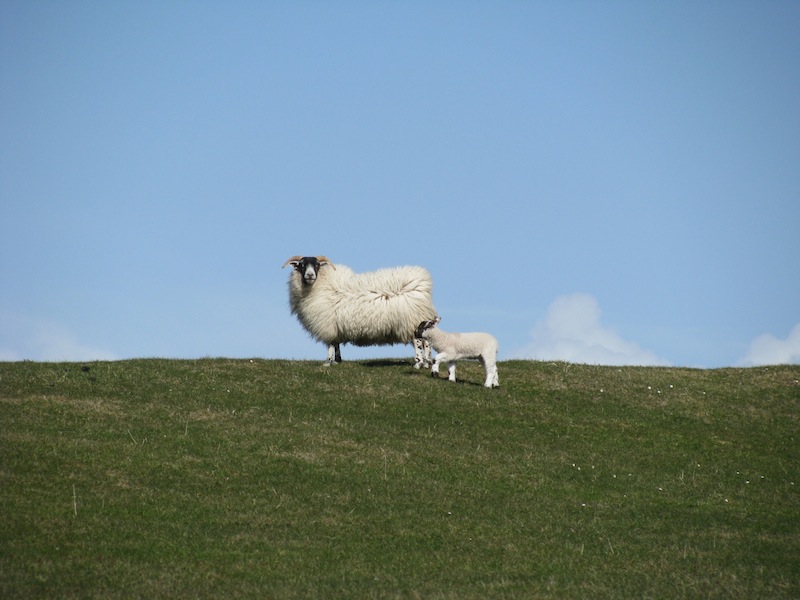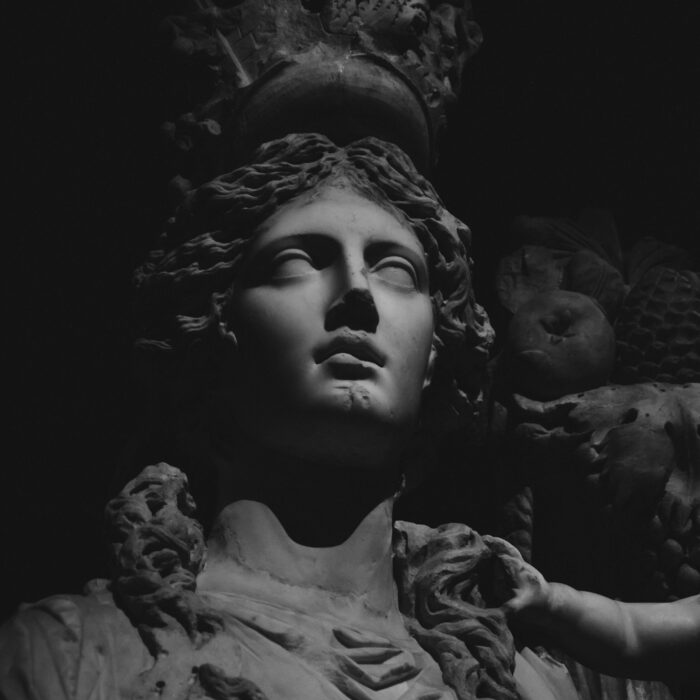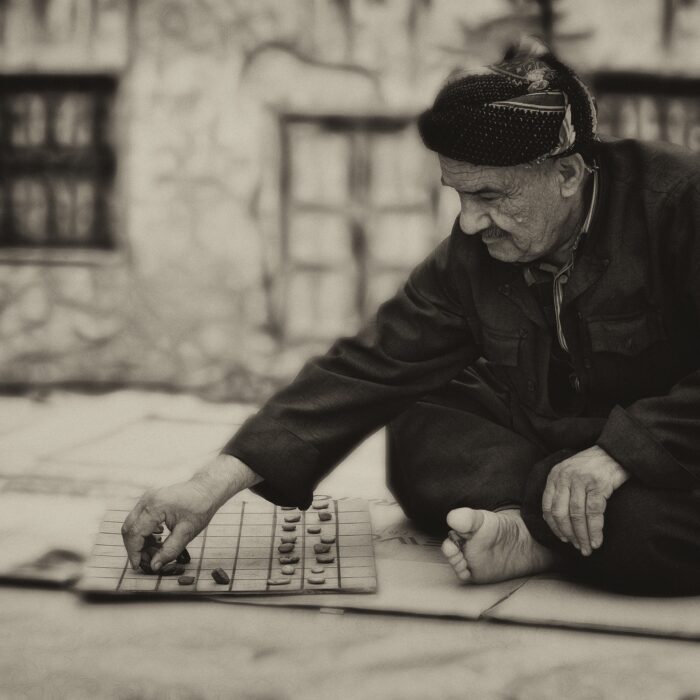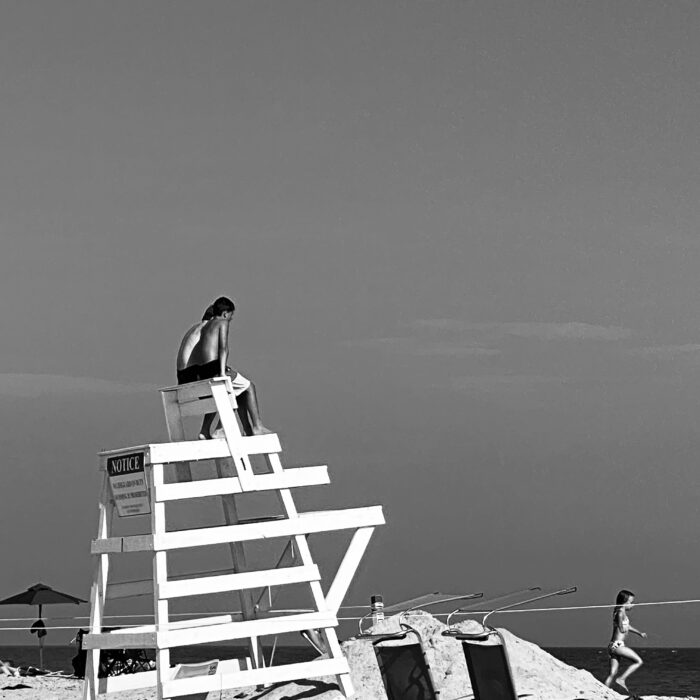You have no items in your cart. Want to get some nice things?
Go shoppingThis is a shortlisted story for the 2011 Litro & IGGY International Short Story Award for Young Writers.
 The first time the phone rang in the office I ignored it. The second time I answered because all I could think of was my mother saying: ‘They’ll call back if it’s important.’ It was Emma, and in the hesitation before she spoke I knew that my mother was right. ‘It’s the police.’ she said. ‘They’re on their way to the office. It’s about Harold.’
The first time the phone rang in the office I ignored it. The second time I answered because all I could think of was my mother saying: ‘They’ll call back if it’s important.’ It was Emma, and in the hesitation before she spoke I knew that my mother was right. ‘It’s the police.’ she said. ‘They’re on their way to the office. It’s about Harold.’
There was one male officer and one female. They sat opposite me in the cheap swivel chairs that my children made themselves sick on when they visited. ‘I hope we didn’t alarm you Sir.’ said the female. ‘We do tend to have that effect on people.’
‘No, its fine. My wife called ahead. What happened?’
‘Natural causes. Its standard procedure to inform the next of kin but well…we’ve spent the last few days going through his personal documents, official identification, bills, that sort of thing. There’s no family to speak of, no apparent friends or colleagues even. In fact, in all of his belongings the only contact we could find was you.’
I stood and turned to face the window which looked out over the ugly grey concrete of the car park and the greenery of the public gardens beyond it. Behind me I heard the roll of wheels on the carpet as a chair was pushed backwards and the creak of its plastic spine as its occupant stood.
‘Sir? You knew Mr Stirling?’
Outside a secretary I recognised from one of the offices below me was loading cardboard boxes into the back seat of her car. Through the glass I watched as a bird swooped and flew low to the ground. I tried to follow it but it got lost in the blurred line between the green and the grey.
One of the last times I’d been with Harold was the first day of a freezing February almost ten years ago. As usual I was waiting for him on the corner but today was different in that the snow made his painfully slow walking speed even slower. It wasn’t that he couldn’t go faster, more that he had no desire to do so. ‘There’s nothing to be gained by speed Michael.’ he would say ‘Did you never read the tortoise and the hare?’ ‘Did you never read my class timetable?’ I said in response and he’d grumble and tell me go ahead but I never did and I was always late.
To try and distract myself from the numbness in my fingers I played a game that we sometimes played in the car when a landmark loomed in the distance. I closed my eyes and waited, seeing how long I could resist the temptation to look and see how much closer he was. I had a few tries but every time I opened my eyes things didn’t seem to have progressed that much further which made it seem longer than ever. Anyway it didn’t work since Harold was the one who was moving and therefore technically the passenger while I, rather appropriately, was the landmark. The frozen statue. A lovely ice sculpture.
That was the episode that gave me hypothermia. I didn’t call home but my parents showed up anyway. My flatmate Sophie claimed it must be mother’s instinct until Dad said, ‘No, it was fathers common sense.’ meaning, I guess, that he knew I was heading for trouble. I half expected Harold to show up too but his common sense must have told him to stay away. It was also the first of the discussions about him and an opportunity for my parents to showcase their concern by using words like ‘appropriate’ as though his old age was something that needed to be considered. ‘He’s not your counsellor any more Michael.’ they’d say.
‘No. He’s my friend.’ I’d reply. They were wrong but even so I was growing up and I started to forget the reasons why we walked in the snow. I never saw him much after that.
Me and Emma got married in the summertime. We got a mortgage on a small crumbling house about half an hour outside London, whose only real advantage was the piece of land we got with it. It had always been Emma’s dream to have a small working farm that we could run, alongside our regular jobs. Within a year we were keeping chickens, sheep and a vegetable garden which never failed to provide us with barely edible produce. It was an odd contrast from city life though we both savoured the peace and routine of it. In those evenings of planting and feeding, things which didn’t come naturally to me at all, we were mostly silent. We had a sort of understanding that we would talk when things were ripe to be said so she never asked me anything. That was until a day when she dug up the rotting stalks of the row of corn which I had planted and asked me outright, ‘What did you do wrong?’ That was when I told her about Jack.
The first thing everyone said to me when Jack died was ‘You mustn’t blame yourself.’ as though I were dealing with my parents getting a divorce. Everyone except Harold who said ‘When you lose someone you love as a child it plagues you all your life.’ Jack had collapsed when we were playing outside and I hadn’t known what to do so I’d waited too long before running for help. By the time I came back he was dead. Two days afterwards his parents came to visit me. I knew his mother who always invited me in on the mornings when I knocked on the door to meet him for school. I had never met his father as he was always at work but there was a picture of him sat next to a telephone on the table. I wasn’t sure what he did, Jack wasn’t certain either, but he looked so impressive with broad shoulders and a smart suit that I was sure he must be someone important. When they knocked on the door and in a hushed voice mum invited them into the living room I saw him in real life for the first time. He looked smaller, more shrunken than I’d thought he’d be. She looked smaller too huddled in her coat with her white face peeking out from the collar. He looked tired while her eyes were red and puffy. That seemed like something that mums and dads just did, taking a role each, like the way one drank tea and one coffee. She sat in the armchair and pulled her coat more tightly around her even though the sun was shining through the big glass windows and making the leather of the chairs hot to touch. He remained standing at her side. Me and mum sat opposite them on the sofa. She tried to take my hand but I brushed it away. Mum was asking them questions like if they’d had a chance to sleep and eat but all I could concentrate on was his mother who had a tissue bunched in her hand. I could see it through the gaps in her clenched fingers. Her knuckles were white from squeezing it and I could imagine the fingernail marks on her palm. She was the one who said: ‘Thank you for agreeing to see us. We know how hard it must be for you’. They wanted to talk about it, about whether he struggled much. I told them it was instant and they accepted my lie without fuss. It was after they left that Mum said ‘I want you to see someone.’ Harold was two days away from retiring but he was the only person available at short notice. We had our first and last session on a Saturday afternoon. For the next decade after that we just called it meeting.
We slaughtered the sheep in the autumn. I started to fix up the house the best I could. For the most part I was only playing at being a handyman but I think Emma knew I found it quite cathartic so she let me get on with it.
When I was 25 my son was born. He was a month premature and the doctors didn’t think he would make it. My mother and father in law, despite their assurances that he was going to be fine, wanted us to christen him just in case. Me and Emma didn’t agree but were too fraught to debate it so agreed. The hospital priest came and the five of us stood over the incubator. It felt like standing on the lip of a grave. As he said his prayers we bowed our heads. Emma was crying and I held her but all I was thinking about was a name. No matter what happened he had to have a name. We called him Harry.
After the christening I stayed away from the hospital. There was nothing I could do there so I threw myself into work. I got up before dawn and worked past eight in the evening. Didn’t bother to eat, wasn’t hungry anyway. At first I slept in the house and installed a new phone next to the bed, just in case. After a while though I began to dread the long commute home to an empty house so I put off leaving until later and later until eventually it was too late and I just slept on the floor of my office. If my colleagues noticed my crumpled clothes and unshaven face in the morning they didn’t mention it nor did they question why I wasn’t at the hospital. Nobody asked me about Harry and I didn’t tell them so he remained in limbo for the time being. He kept on ticking and the phone didn’t ring.
It seemed my hard work and long hours hadn’t gone unnoticed. The day he came out of the hospital I got a promotion. When I got home that night my parents in law were in the baby’s room sorting through gifts and cards that out friends had sent. Not ones for confrontation they were just curt enough to make their point and I knew any attempt to make amends would be useless. They had been silently angry with me since the first day I returned to work after the birth and I remained silently apologetic in return. The cot was in our bedroom, Emma didn’t want to be apart from him for a while, and when I opened the door she was fast asleep. I wondered if she was apart from him in her dreams or close by and which she would rather be if she had the choice. I could detect Harry’s snuffling breaths under Emma’s heavy ones but it gave me no signal of whether he was asleep or awake since the pattern was as alien to me as the breath of a stranger. At least he wasn’t crying. I went over to the cot and saw he was asleep. Reaching down I splayed my hand on his chest and I watched it rise and fall with each breath. He seemed impossibly small. I told him about the promotion and we both kept on breathing.
It wasn’t until several years after me and Harold first met that I really understood why he was helping me. He looked right at me when he spoke. ‘I’ve never had a great tragedy like you have Michael. I’ve lost people to old age and that’s not the same. It still leaves you empty but you don’t feel cheated like I know you do. But when it comes to grieving the truth of it is that there’s nothing I can really teach you, there’s no great twist in the tale. It’s just the days Michael, and you have to try and learn each one so that you can turn them into a life you’ll recite to your children one day. The test is to make it the best story you can. All I can do is guide you along the way.’
In the early morning several weeks after Harold had been buried, me and Emma lay awake in bed. She was the first to break the silence. ‘You’ve always been so haunted. I know things have been better since the kids were born but maybe now you’ve reached the end of something it can be a new beginning.’
‘He was right Emma. It never leaves you. You just have to learn to live with it. All those walks we went on together that you were curious about. We never talked about anything. We were just learning to live with it.’
The lambs were born in the spring.
Charlotte Poulter, in her own words:
"I have always enjoyed writing and often wrote creatively as a child. However, storytelling being so private yet public at the same time, I shied away from it as a teenager, instead focusing on nonfiction writing in relation to my studies. It is only within the last few years that I have returned to creative writing and am finding it a wonderfully consuming experience where self doubt and passion go head to head and where each new story teaches me how to improve on the next. I am very excited and honoured to be on the shortlist alongside such talented young writers."





